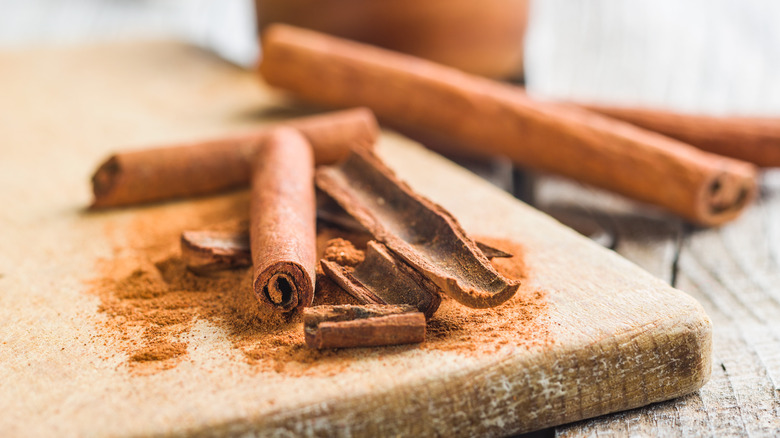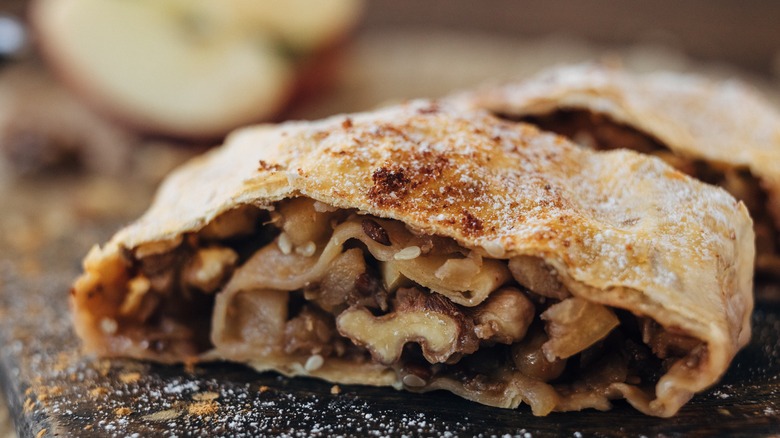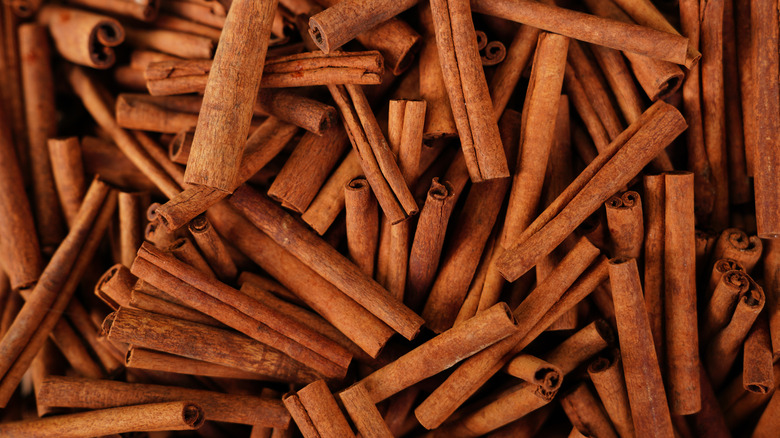What Happens To Your Body If You Eat Too Much Cinnamon
Cinnamon is up there with cilantro as a spice (and scent) that can drive friends and family apart —because while the scent of cinnamon is enough to perk some of us up and make us dream of snuggly fall and winter nights, others might not be as keen. The spice even became an internet sensation thanks to the cinnamon challenge, where people dared each other to swallow a spoonful of cinnamon in 60 seconds without any liquids (and definitely do not do that at home, because medical experts like the Rady Children's Hospital in San Diego says it is just plain dangerous.)
Aside from the cinnamon challenge, the spice is gaining attention in alternative health circles. But is loading up with cinnamon actually good for you?
Cinnamon could help fight diabetes, but it's not recommended you try
Cinnamon doesn't just perk up your apple pies, pumpkin pies, snickerdoodles, or rolls. Some studies indicate that cinnamon may also be helpful in lowering blood sugar levels with people who suffer from diabetes. But the Mayo Clinic is quick to warn that the studies are inconclusive, because they used different doses and different types of cinnamon. It also says more research is needed if doctors are to sign off on the notion that cinnamon supplements are actually effective in managing the disease.
Because these studies are so inconclusive and because supplements available on the market aren't regulated by the Food and Drug Administration, the American Diabetes Association thinks patients shouldn't rely on cinnamon to manage glucose levels (via Cleveland Clinic).
Taking too much cinnamon may have hidden risks
Even if research indicates that cinnamon might help diabetics, it could end up hurting patients with liver problems. The National Center for Complementary and Integrative Health (NCCIH) says that cinnamon contains a chemical known as coumarin, which isn't toxic in small amounts, but might worsen a pre-existing liver disease if it is taken in big doses (via LiveStrong). Cinnamon lovers who are taking blood thinners should also be aware that high levels of cassia cinnamon might also affect people who are taking anticoagulants.
The Cleveland Clinic thinks the best way to add cinnamon to your diet is to take it in food. You can sprinkle the spice on your oatmeal, or add up to a teaspoon a day to different dishes you might be cooking. So go ahead, add an extra sprinkle to your cappuccino, or add an extra kick to your rolls and pastries, because cinnamon and sugar could well cancel each other out.
But as far as packing in a ton in hopes of some sort of health benefit happening? You probably shouldn't do that, just to be on the safe side.


